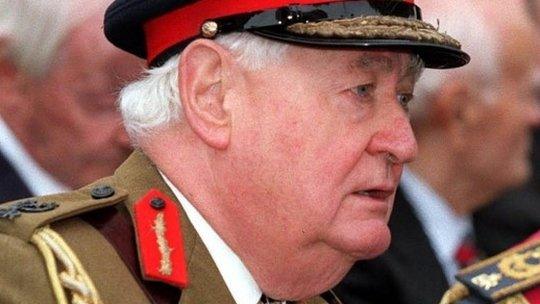'Errors' in Met's VIP paedophile probe Operation Midland
- Published
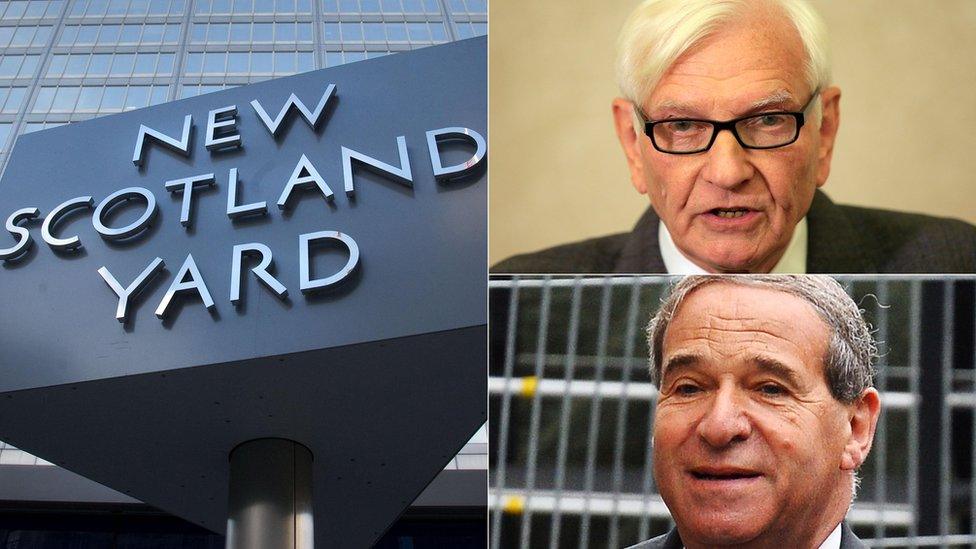
Scotland Yard has apologised to Harvey Proctor (top right) and the wife of Lord Brittan
Numerous errors were made in Scotland Yard's investigation into paedophile allegations against VIPs, an independent review has found.
The decision to abandon Operation Midland should have been taken "much earlier", Sir Richard Henriques said, external.
Five officers have been referred to the Independent Police Complaints Commission (IPCC) following the review.
The Met Police commissioner accepted "accountability for these failures" and apologised to those involved.
Sir Bernard Hogan-Howe said: "It is a matter of professional and personal dismay that the suspects in the investigation were pursued for so long when it could have been concluded much earlier."
He apologised to former head of the Army Lord Bramall, ex-MP Harvey Proctor and the widow of former Home Secretary Lord Brittan "for the intrusion into their homes and the impact of Operation Midland on their lives" after all three men were accused but subsequently cleared.
'Irreversible' damage
Operation Midland was launched after claims that boys had been sexually abused by a group of powerful men from politics, the military and law enforcement agencies at locations across southern England and in London in the 1970s and 1980s.
It cost £2.5m, but closed in March without a single arrest or charge.
Sir Richard, a retired High Court judge, examined eight investigations in total, also including Operation Yewtree - into sexual abuse allegations against Jimmy Savile and others - and Operation Vincente - into a separate allegation that Lord Brittan raped a 19-year-old woman.
Lord Brittan died in January 2015 without being told that the case against him had been dropped.
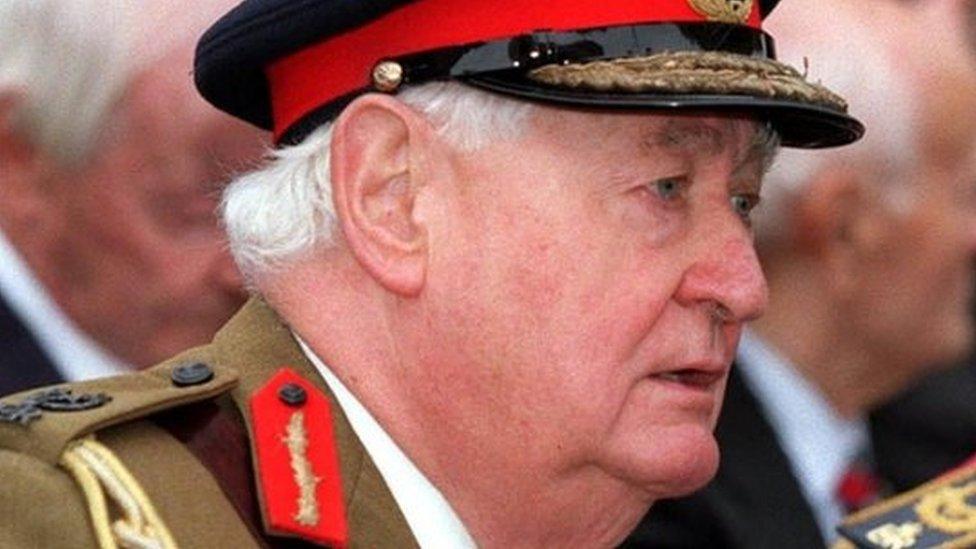
Lord Bramall was never arrested and has always denied the allegations
Mr Proctor, who was cleared of being part of an alleged Westminster paedophile ring, said in a letter to Sir Bernard that he accepted the commissioner's apology "without prejudice."
"But as I am sure you will be aware, the detrimental impact of Operation Midland on my family, friends and myself, has been irreversible," he went on.
Mr Proctor said his respect for the police remained "undiminished", but added: "I hope this travesty will never occur again."
The review found 43 failings in Operation Midland, including believing the complainant, a man known as "Nick", for too long; one officer announcing that Nick's claims were "credible and true"; and applying for search warrants with flawed information.
The Met have confirmed that Nick is now being investigated for allegedly attempting to pervert the course of justice.
Sir Richard said: "The principal cause of the many failures in this investigation was poor judgement and a failure to accurately evaluate known facts and to react to them.
"A major contributing factor was the culture that 'victims' must be believed."
In all, Sir Richard made 25 recommendations, including:
Those who make complaints should be referred to as "complainants" and not as "victims" throughout the investigative and judicial process
The instruction to officers to "believe a 'victim's' account" should cease
Investigators should be informed that false complaints are made from time to time and should not be regarded as a remote possibility
A suspect should have the right to anonymity prior to arrest
Work should be done to improve the police relationship with those accused, given the "crushing effect" of a prolonged investigation on them and their families

Analysis by Angus Crawford, BBC News correspondent
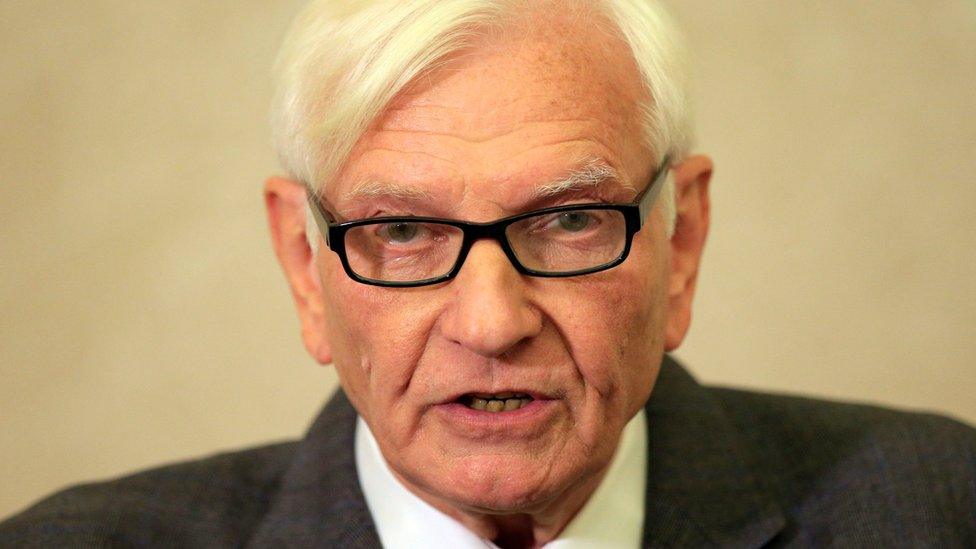
Former MP Harvey Proctor said he hopes the "travesty" never happens again
Poor judgement. Those are the two words that ring out from this particular inquiry into the conduct of Operation Midland.
There were 43 separate failings, an extraordinary number, and as a result five officers are being referred to the Independent Police Complaints Commission.
But it appears of the 43, four were absolutely fatal.
First of all, officers believed that one of the complainants was credible for far too long. Secondly, in December 2014, only a month after Midland had been launched, officers described his accusations as "credible and true".
The third error has gone slightly under the radar, but according to Sir Richard, the Met obtained search warrants for properties using flawed and incomplete evidence, which means they misled a judge. As he puts it, "the gravity" of that "cannot be overstated".
And finally, the review concluded that the entire investigation should have been closed down much earlier.

Sir Richard said the decision by those in charge of Operation Midland to search several premises, risking the names of the householders being made public, was a "grave error of judgement".
Instead, the investigation could have been carried out speedily and without those named learning of it.
There was also an "unjustifiable imbalance", he said, between the scrutiny of complainants and suspects.
Lord Bramall and Mr Proctor were accused of the gravest of crimes and then left in a state of limbo while Nick was contacted on a regular basis and given "chapter and verse" on the progress of the investigation, he added.
'Best of intentions'
Peter Saunders, founder of the National Association for People Abused in Childhood, said: "It's not a good day. But what I hope and I pray is that people who have been affected by these crimes - young people, children and the adults that they become - if they are able to report these crimes, still do so.
"Don't be put off by the hype around this particular failed operation."
A spokeswoman for London Mayor Sadiq Khan said it was "clear that a series of extremely serious errors were made by the Met".
She added: "The mayor will now be seeking full assurances from the Met commissioner on the consistency of the quality of the force's investigations into sexual offences and guarantees that the failings of past investigations will not be repeated."
Deputy chairwoman of the IPCC Rachel Cerfontyne said the five officers referred to the watchdog ranged in rank from sergeant to deputy assistant commissioner, and a decision about whether to conduct a formal investigation into them would be taken in due course.
One of those referred, deputy assistant commissioner Steve Rodhouse, said he did not believe that he or any other officer within Operation Midland had committed any misconduct.
"While it is right that lessons should be learned from Operation Midland I want to emphasise that my colleagues and I investigated the allegations made with the best of intentions."
- Published9 August 2016
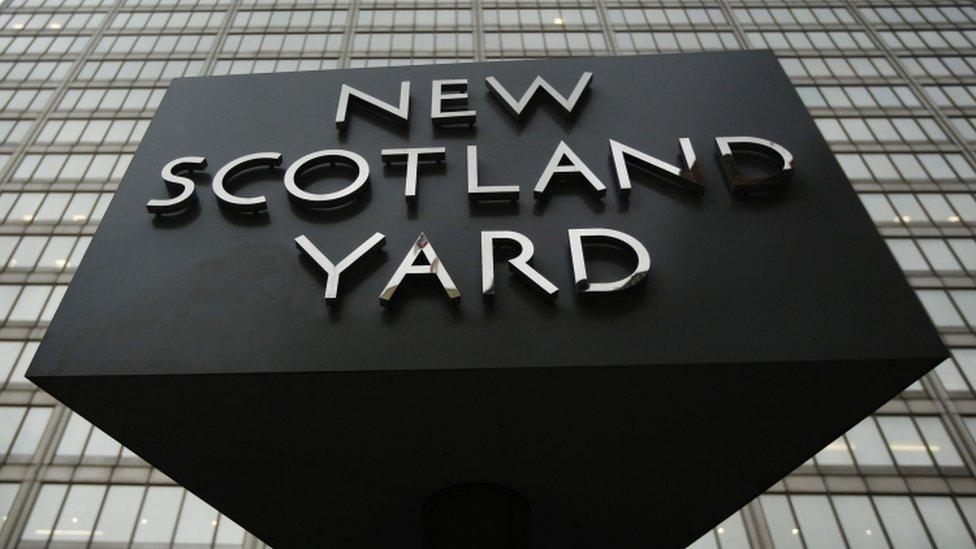
- Published10 February 2016
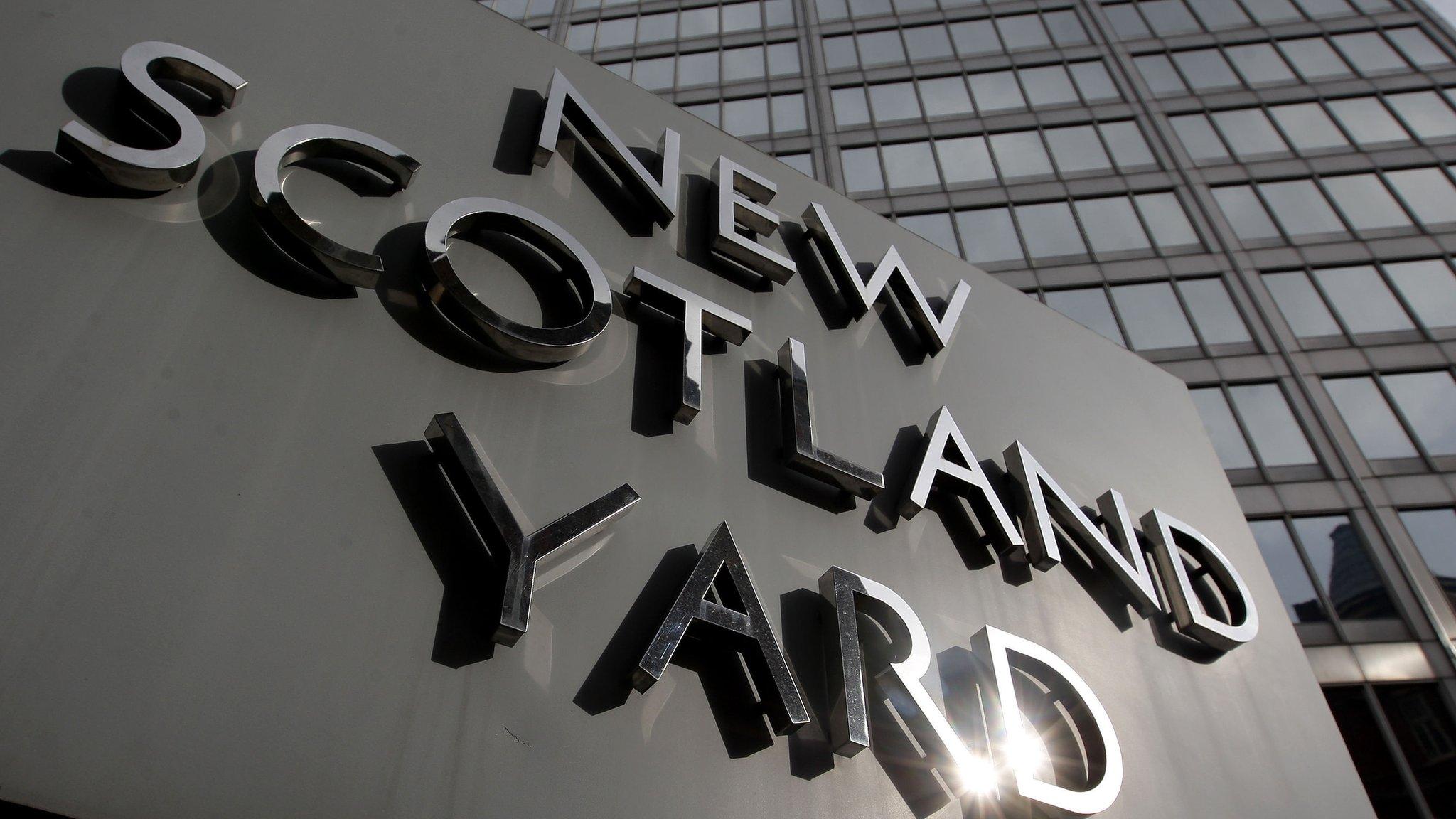
- Published4 February 2016
